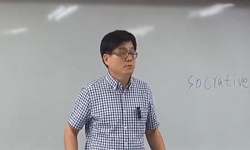본 논문은 영 제국이 2차 세계대전 이후 전개한 식민지 대학 개발(Development) 사업을 통해서, 영국 대학과 (과거) 식민지 대학 사이의 교육 식민화와 탈식민화 네트워크 연구한다. 이를 바탕으...
http://chineseinput.net/에서 pinyin(병음)방식으로 중국어를 변환할 수 있습니다.
변환된 중국어를 복사하여 사용하시면 됩니다.
- 中文 을 입력하시려면 zhongwen을 입력하시고 space를누르시면됩니다.
- 北京 을 입력하시려면 beijing을 입력하시고 space를 누르시면 됩니다.

역사교육을 탈식민화하는 것의 역사적 의미 - 영연방 대학을 중심으로 - = The Historical Significance of Decolonizing History Education in British and Commonwealth Universities
한글로보기부가정보
국문 초록 (Abstract)
식민 지배하에서 개교한 식민지 대학이 런던대학교와 맺은 ‘특별한 관계’ 속에서 탈식민화된 역사교육을 제공하기는 상당히 어려웠다. 1950년대 후반부터 식민지 대학의 사학과 교수진들이 지역 학자들과 학술적으로 교류하고, 그 국가나 지역 단위의 역사 교재 출판 사업이 활발해졌다. 이는 공식화되어 가던 식민지의 독립 일정과 탈식민화의 맥락이 반영되었기 때문이다. 탈식민화 이후 영국을 포함한 영연방 국가 대학의 역사교육에서 과거 식민지적 연구와 교육을 탈식민화하는 데에는 현지화된 지역학 연구가 부상하고, 아프리카연구소를 발족하여 새로운 관점의 학문 풍토를 제공하여 사학과와 인접 학문의 탈식민화를 촉진했다. 하지만 식민화되어 이어 온 역사교육은 독립 이후에도 탈식민화하는 것이 쉽지 않았다. 독립한 영연방 대학들은 현지화된 관점의 역사 연구와 아프리카연구소 설립과 같이 과거 제국의 ‘아래로부터’ 변화를 도모했고, 이는 영국 대학교와 학계가 탈식민화된 연구 변화를 끌어내는 데 영향을 끼쳤다. 이 사실은 영 제국사와 역사교육학 연구에서 그 의의가 크다. 그럼에도 여전히 영국 중심의 사고와 학계의 연구 방향을 극복하기 위해서는 현재 영국과 영연방에서 진행되고 있는 ‘왜 내가 배우는 과목이 백인 위주인가?’와 같은 비판적 질문과 실천적 변화가 역사교육에서 더 활발하게 이루어져야 할 것이다.
본 논문은 영 제국이 2차 세계대전 이후 전개한 식민지 대학 개발(Development) 사업을 통해서, 영국 대학과 (과거) 식민지 대학 사이의 교육 식민화와 탈식민화 네트워크 연구한다. 이를 바탕으로 영국과 신(新) 영연방 국가의 대학 사이에 이루어진 역사교육의 탈식민화 상호작용 사례들을 바탕으로 영연방에서 이루어진 역사교육의 탈식민화 양상과 의미를 되짚어본다.
식민 지배하에서 개교한 식민지 대학이 런던대학교와 맺은 ‘특별한 관계’ 속에서 탈식민화된 역사교육을 제공하기는 상당히 어려웠다. 1950년대 후반부터 식민지 대학의 사학과 교수진들이 지역 학자들과 학술적으로 교류하고, 그 국가나 지역 단위의 역사 교재 출판 사업이 활발해졌다. 이는 공식화되어 가던 식민지의 독립 일정과 탈식민화의 맥락이 반영되었기 때문이다. 탈식민화 이후 영국을 포함한 영연방 국가 대학의 역사교육에서 과거 식민지적 연구와 교육을 탈식민화하는 데에는 현지화된 지역학 연구가 부상하고, 아프리카연구소를 발족하여 새로운 관점의 학문 풍토를 제공하여 사학과와 인접 학문의 탈식민화를 촉진했다. 하지만 식민화되어 이어 온 역사교육은 독립 이후에도 탈식민화하는 것이 쉽지 않았다. 독립한 영연방 대학들은 현지화된 관점의 역사 연구와 아프리카연구소 설립과 같이 과거 제국의 ‘아래로부터’ 변화를 도모했고, 이는 영국 대학교와 학계가 탈식민화된 연구 변화를 끌어내는 데 영향을 끼쳤다. 이 사실은 영 제국사와 역사교육학 연구에서 그 의의가 크다. 그럼에도 여전히 영국 중심의 사고와 학계의 연구 방향을 극복하기 위해서는 현재 영국과 영연방에서 진행되고 있는 ‘왜 내가 배우는 과목이 백인 위주인가?’와 같은 비판적 질문과 실천적 변화가 역사교육에서 더 활발하게 이루어져야 할 것이다.
다국어 초록 (Multilingual Abstract)
There were colonial efforts of African and Caribbean universities to adapt history education to their local contexts, particularly since the late 1950s, when faculty members began collaborating with local scholars and publishing national history textbooks. However, the political and economic context of colonization heavily influenced these efforts for localizing history education. With the political independence, African universities could expand their academic scope such as opening the Institute of African Studies. It also helped to decolonize studies in British universities and academia. Nonetheless, decolonizing history education is a complex task, especially given the deeply ingrained British academic structures. In order to overcome this, critical questions such as “Why my curriculum is so white?” and practical changes in history education, such as those currently underway in the UK and Commonwealth, will need to be more widely practiced.
This article examines the educational colonization and decolonization networks between British universities and (former) colonial universities through the colonial university development projects undertaken by the British Empire. Based on this analysi...
This article examines the educational colonization and decolonization networks between British universities and (former) colonial universities through the colonial university development projects undertaken by the British Empire. Based on this analysis, it seeks to explore the patterns and significance of the decolonization of history education within the Commonwealth by investigating the academic interactions in history education between British and Commonwealth universities.
There were colonial efforts of African and Caribbean universities to adapt history education to their local contexts, particularly since the late 1950s, when faculty members began collaborating with local scholars and publishing national history textbooks. However, the political and economic context of colonization heavily influenced these efforts for localizing history education. With the political independence, African universities could expand their academic scope such as opening the Institute of African Studies. It also helped to decolonize studies in British universities and academia. Nonetheless, decolonizing history education is a complex task, especially given the deeply ingrained British academic structures. In order to overcome this, critical questions such as “Why my curriculum is so white?” and practical changes in history education, such as those currently underway in the UK and Commonwealth, will need to be more widely practiced.
동일학술지(권/호) 다른 논문
-
- 역사교육연구회
- 역사교육연구회 편집부
- 2024
- KCI등재
-
- 역사교육연구회
- 홍성화
- 2024
- KCI등재
-
한일 역사 갈등의 變換과 역사교과서 敍事 構成의 변화(1945~2007)
- 역사교육연구회
- 김태웅
- 2024
- KCI등재
-
학교에서 학습하는 역사 지식의 생활 맥락으로 전이 가능성 - 중학교 역사 교과서의 ‘역사의 의미’와 ‘역사학습의 목적’ 분석을 중심으로 -
- 역사교육연구회
- 강선주
- 2024
- KCI등재




 DBpia
DBpia






